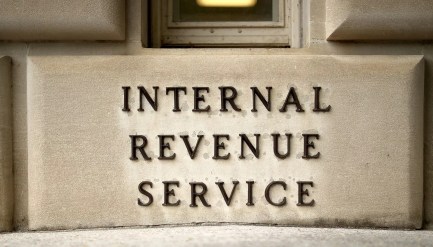The Affordable Care Act added section 6056 to the Internal Revenue Code, which requires “applicable large employers” that are subject to the employer shared responsibility provisions (“play or pay”) to file annual information returns (the “6056 return”) with the IRS and provide statements to their full-time employees about the health insurance coverage the employers offer.
An applicable large employer is an employer that employed an average of at least 50 full-time employees on business days during the preceding calendar year. A full-time employee generally includes any employee who was employed on average at least 30 hours per week and any full-time equivalents (for example, 40 full-time employees employed 30 or more hours per week on average plus 20 employees employed 15 hours per week on average are equivalent to 50 full-time employees).
Key point. There is no exemption for religious or other nonprofit employers from the reporting requirements.
An applicable large employer may be a single entity or may consist of a group of related entities (such as parent and subsidiary or other affiliated entities). In either case, these reporting requirements apply to each separate entity.
The IRS will use the information provided on the information return to administer the employer shared responsibility provisions of the Act and determine whether an employee is eligible for the premium tax credit under section 36B of the tax code.
Large employers that sponsor self-insured group health plans also are required to report information about the health coverage they provide.
The information reporting requirements under section 6056 are first effective for coverage offered in 2015. A large employer must file information returns with the IRS and furnish statements to employees beginning in 2016; these returns and statements will report information about the employer’s offers of health coverage to its full-time employees for calendar year 2015.
IRS Notice 2013-45 provides transition relief for 2014 from the section 6056 reporting requirements and the section 6055 reporting requirements for health coverage providers and, thus, the employer shared responsibility provisions as well. Accordingly, neither the reporting requirements nor the employer shared responsibility provisions apply for 2014. However, in preparation for the application of the employer shared responsibility provisions beginning in 2015, employers and other affected entities may comply voluntarily for 2014 with the information reporting provisions and are encouraged to maintain or expand coverage in 2014.
In implementing new information reporting requirements, short-term relief from reporting penalties is frequently provided. This relief generally allows additional time to develop appropriate procedures for collection of data and compliance with the new reporting requirements. Accordingly, the IRS won’t impose penalties on large employers that can show that they have made good faith efforts to comply with the information reporting requirements.
How to report
Under the “general method” of reporting, a large employer may satisfy the requirement to file a section 6056 return by filing a Form 1094-C and, for each full-time employee, a Form 1095-C (employee statement). A large employer that maintains a self-insured plan also uses a Form 1095-C to satisfy the reporting requirements under section 6055. There are two alternative methods of reporting under section 6056 that were developed to minimize the cost and administrative tasks for employers. They are explained on the IRS website (http://www.irs.gov/uac/Questions-and-Answers-on-Reporting-of-Offers-of-Health-Insurance-Coverage-by-Employers-Section-6056).
An applicable large employer is an employer that employed an average of at least 50 full-time employees on business days during the preceding calendar year.
Large employers must file Form 1095-C for each employee and a transmittal form (Form 1094-C) with the IRS on or before February 28 (March 31 if filed electronically) of the year immediately following the calendar year for which the coverage information is reported. Because transition relief applies for section 6056 reporting for 2014 (see above) the first section 6056 returns required to be filed are for the 2015 calendar year and must be filed no later than March 1, 2016 (February 28, 2016, being a Sunday), or March 31, 2016, if filed electronically. Regulations under section 6081 address extensions of time to file information returns.
Large employers must furnish the statement to each full-time employee on or before January 31 of the year immediately following the calendar year to which the information relates. This means that the first section 6056 employee statements (the statements for 2015) must be furnished to employees no later than February 1, 2016 (January 31, 2016, being a Sunday).
The regulations require electronic filing with the IRS of section 6056 information returns except for employers filing fewer than 250 section 6056 returns (employee statements) during the calendar year. The regulations permit, but don’t require, employers to furnish electronically the section 6056 employee statements to full-time employees. However, an employer must obtain consent from the employee before the section 6056 employee statement may be furnished electronically.
Key point. An employer can hire a third-party administrator or other third-party service provider to file the return with the IRS and furnish the statements to employees required under section 6056.
The penalty under section 6721 may apply to an applicable large employer that fails to file timely information returns, fails to include all the required information, or includes incorrect information on the returns. The penalty under section 6722 may apply to an applicable large employer that fails to furnish timely the statement, fails to include all the required information, or includes incorrect information on the statement. The waiver of penalty and special rules under section 6724 and the applicable regulations, including abatement of information return penalties for reasonable cause, may apply to certain failures under section 6721 or 6722.


